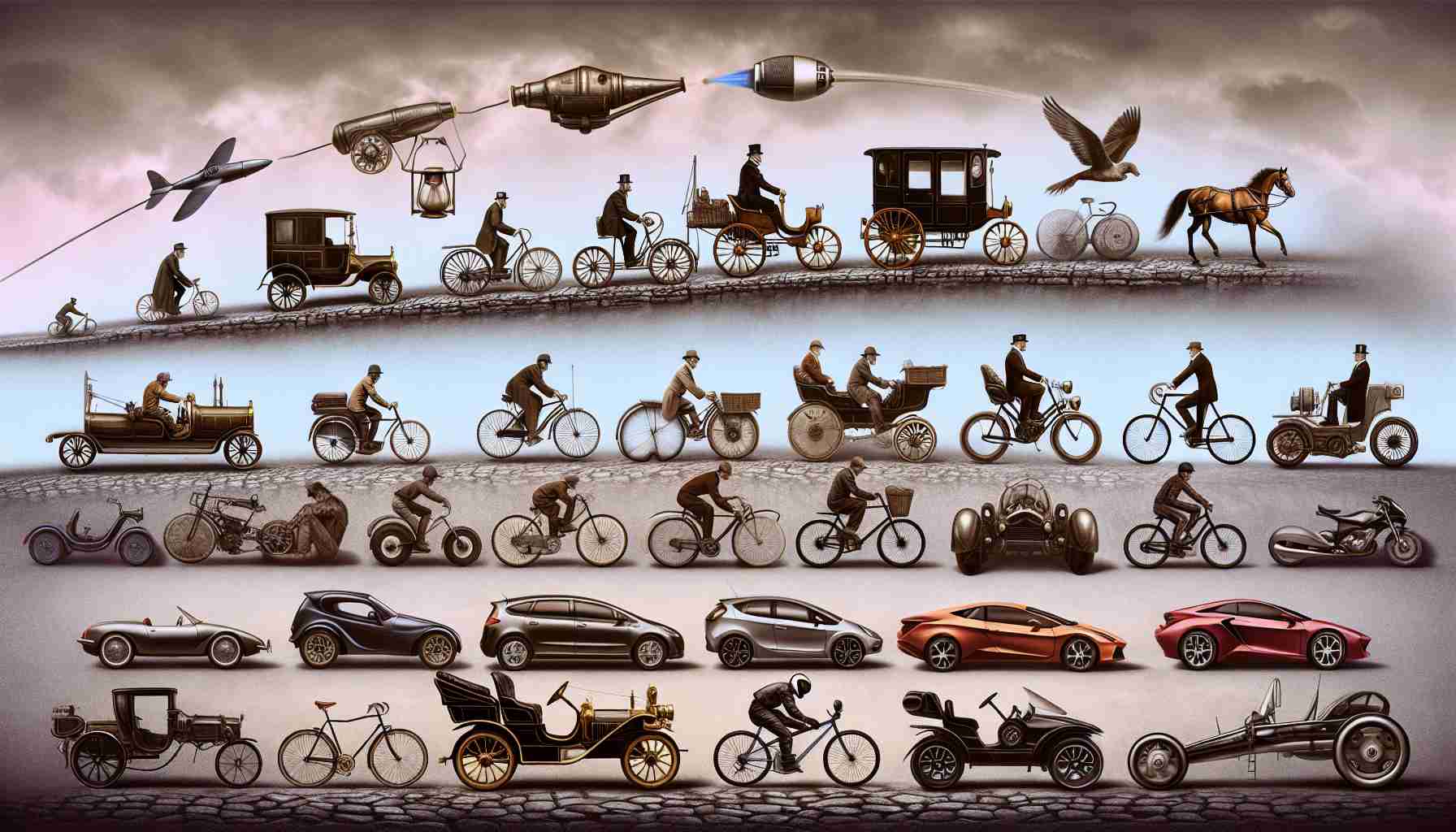China has unveiled a groundbreaking new vehicle that defies traditional transportation expectations, signaling a significant leap forward in the future of personal mobility. The innovative Land Aircraft Carrier, showcased by leading electric vehicle manufacturer XPeng, is set to revolutionize the way we commute.
Unlike anything seen before, this cutting-edge vehicle merges the realm of driving with aerial capabilities, offering a glimpse into a future where flying cars are no longer just the stuff of science fiction. The sleek design and advanced technology integrated into the Land Aircraft Carrier underscore XPeng’s commitment to pushing the boundaries of transportation.
Not only a civilian luxury, this futuristic vehicle also holds strategic value, incorporating features that could potentially enhance military operations. With a focus on reducing radar visibility, the Land Aircraft Carrier represents a dual-purpose innovation that aligns with China’s ambitious technological objectives.
XPeng’s expertise in electric propulsion has paved the way for the development of an eco-friendly aerial vehicle that not only reduces carbon emissions but also expands mobility options for individuals worldwide. The modular design of the Land Aircraft Carrier demonstrates XPeng’s dedication to sustainability and innovation.
As China continues to assert its dominance in advanced technology sectors, the debut of the flying car signifies a momentous achievement in the nation’s technological evolution. With XPeng’s ambitious plans to make this futuristic vehicle available to the public by 2026, the boundaries of personal transport are being pushed to new heights.
Revolutionary Advancements in Personal Transport Take Flight
China’s unveiling of the groundbreaking Land Aircraft Carrier has sparked immense interest in the realm of personal transport, paving the way for a future where conventional commuting norms are challenged. As this innovative vehicle blurs the lines between traditional driving and aerial capabilities, it raises essential questions about the future of transportation:
1. How will the integration of aerial capabilities impact daily commuting habits?
The introduction of vehicles like the Land Aircraft Carrier opens up possibilities for faster and more dynamic travel experiences, potentially transforming daily commutes into seamless and efficient journeys.
2. What challenges are associated with the mass adoption of flying cars?
Key challenges include addressing airspace regulations, ensuring safety standards for aerial travel, and managing potential traffic congestion in the skies as more flying vehicles take to the air.
While the Land Aircraft Carrier represents a significant leap forward in personal mobility, it also brings about a range of advantages and disadvantages:
Advantages:
– Enhanced mobility options: Flying cars offer new possibilities for reaching destinations quickly and overcoming traditional road obstacles.
– Strategic value: The incorporation of features with military applications signals potential dual-purpose benefits beyond civilian use.
– Environmental impact: The eco-friendly nature of electric propulsion in the Land Aircraft Carrier contributes to reducing carbon emissions.
Disadvantages:
– Regulatory hurdles: The introduction of flying cars raises complex legal and regulatory challenges that need to be addressed for widespread adoption.
– Infrastructure requirements: Building the necessary infrastructure to support aerial vehicles poses significant logistical and financial challenges.
– Safety concerns: Ensuring the safety of passengers and managing the risks associated with aerial travel are critical considerations in the development of flying cars.
As the landscape of personal transport evolves with revolutionary advancements like the Land Aircraft Carrier, it is essential to navigate the associated challenges and controversies to realize the full potential of these innovative vehicles. Stay tuned as the future of transportation takes flight.
For further exploration of cutting-edge developments in personal mobility, visit XPeng’s official website.
 Revolutionary Advancements in Personal Transport
Revolutionary Advancements in Personal Transport  Revolutionizing Waste Management: A Sustainable Shift Towards Electric Fleets in Urban Areas
Revolutionizing Waste Management: A Sustainable Shift Towards Electric Fleets in Urban Areas  X2: XPeng’s Cutting-Edge Flying Car Soars Past Competition
X2: XPeng’s Cutting-Edge Flying Car Soars Past Competition  Revolutionizing Transportation: The Rise of Electric Vehicles
Revolutionizing Transportation: The Rise of Electric Vehicles  Revolutionizing Transportation: The Dawn of Electric Air Mobility
Revolutionizing Transportation: The Dawn of Electric Air Mobility  Innovative Charging Solutions Revolutionizing the Electric Vehicle Industry
Innovative Charging Solutions Revolutionizing the Electric Vehicle Industry  Redefining Innovative Vehicle Transformation with Maxwell’s Leadership
Redefining Innovative Vehicle Transformation with Maxwell’s Leadership  Revolutionizing Luxury Travel: The Influence of Cutting-Edge Technology on the Tourism Industry
Revolutionizing Luxury Travel: The Influence of Cutting-Edge Technology on the Tourism Industry  The Impact of Electric Vehicle Tax Credit Elimination on the Auto Industry
The Impact of Electric Vehicle Tax Credit Elimination on the Auto Industry 